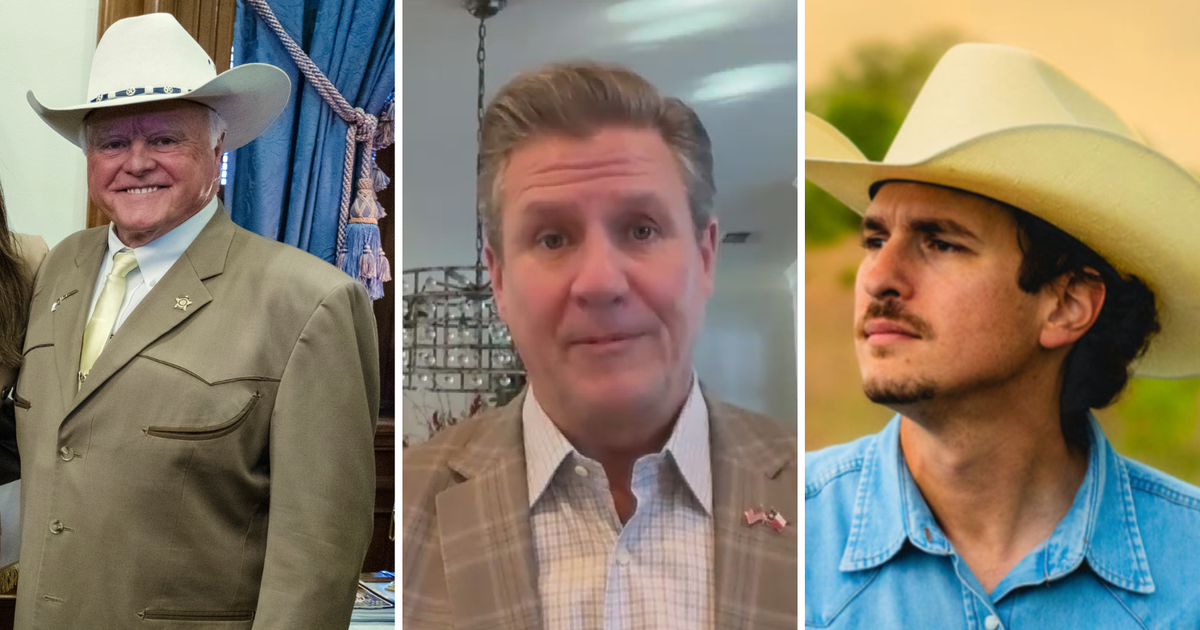Transcript: Scott Gottlieb discusses coronavirus on "Face the Nation," August 23, 2020
The following is a transcript of an interview with former FDA Commissioner Scott Gottlieb that aired Sunday, August 23, 2020, on "Face the Nation."
MARGARET BRENNAN: We turn now to former FDA commissioner Dr. Scott Gottlieb, who joins us from Westport, Connecticut. Good morning to you.
DR. SCOTT GOTTLIEB: Good morning.
MARGARET BRENNAN: New cases have dropped below 50 thousand for about the eighth day, that seems, according to Johns Hopkins, a positive development. But the CDC director says it's really middle America that's getting stuck. Where do you think we are?
DR. GOTTLIEB: Well we're seeing some signs of good news here. We're seeing cases fall across the country, across the Sunbelt, where the epidemic was. We're seeing deaths start to fall, and I think we're going to see deaths fall below a thousand a day. They've been persistently at above a thousand a day now for almost four weeks. And we're seeing hospitalizations fall, which is probably the most important indicator to watch. They fell below 40,000 for the first time in a very long time. And this is being driven by declines in the Sunbelt where the coronavirus really was epidemic, the sort of second wave, if you will, of the epidemic, the first being located in the New York tri-state region. But we're seeing more cases build in the Midwest and the West. And the concern is that if there is sort of a third wave, a third iteration of the national epidemic, it could be more diffuse spread across a broader section of the Midwest and the West, because cases are building in those parts of the country. And that's what's concerning people right now.
MARGARET BRENNAN: I want to ask you about some of the things that the president has said regarding your old agency, the FDA. Yesterday, he posted a tweet that I want to show our viewers. He said "The deep state or whoever over at the FDA is making it very difficult for drug companies to get people in order to test the vaccines and therapeutics. They're hoping to delay the answer until after November 3rd. Most- must focus on speed." It sounds like the president is directly accusing the FDA of political motivations. What is he talking about?
DR. GOTTLIEB: Well, I'm not sure exactly what he's talking about, but I can tell you about my direct experience at the agency. I served in that agency three times, twice under President Bush and once as the commissioner for two years under President Trump. And when it comes to regulatory decision-making in that agency, it's a foundational truth that will guide that agency as science and a deeply seated sense of public health mission that permeates that agency. It's a part of the esprit de corps of the staff of that agency. And I know that they know the urgency of the moment. They put out 60 guidance documents to find new ways to bring products to the market more quickly. There are 750 drugs under mid or late stages of clinical development, clinical trials right now. So I firmly reject the idea that they would slow walk anything or accelerate anything for that matter, based on any kind of political consideration and any consideration other than what's best for the public health and a real sense of mission to patients.
MARGARET BRENNAN: Well--
DR. GOTTLIEB: As for the clinical trials they- please.
MARGARET BRENNAN: The chief of staff to the president doubled down on that today. He says sometimes you have to make them feel the heat if they do not see the light. He said a number of bureaucrats don't see the urgency. What urgency? What- what is the FDA being pressured to do?
DR. GOTTLIEB: Well, look, I-I think a lot of that was about plasma, that tweet, I think the president scoped into that tweet a comment on vaccines. But I will tell you and I sit on the board of Pfizer, one of the two US companies furthest along and developing a vaccine, the vaccine trials have- have enrolled very fast. Moderna and Pfizer, the two US manufacturers who are the furthest ahead, enrolled 25,000 patients into those trials in the four weeks that those trials have been stood up and they've really only been enrolling in earnest for three weeks. That's extraordinary. So to say that these products aren't moving at a really historic pace I think is wrong. The- there were delays or perceived delays in bringing plasma, authorizing plasma under an emergency use authorization, was reported this week that NIH had misgivings about FDA going forward with that authorization. But there's reasons people have some questions about that. The trial that that's going to be based on, 70,000 patients, wasn't a very rigorously done trial. It was an open-label study where everyone got treated. So it's hard to draw conclusions. I believe plasma is probably beneficial. It's probably weakly beneficial in the setting of this treatment. But I think some people wanted to see more rigorous data to ground that decision. And I think that's part of what is going on here with respect to that tweet and questions about the FDA decision making.
MARGARET BRENNAN: OK.
DR. GOTTLIEB: But I think the FDA is on firm ground taking their time to try to closely evaluate that information.
MARGARET BRENNAN: The White House has said there will be a major therapeutic breakthrough on the virus announced today. Do you know what that is?
DR. GOTTLIEB: Well, I would guess it's the emergency use authorization for plasma. The issue here, though, is that patients are getting it. More than 70,000 patients, again, have been dosed with that. So it's available. What the emergency use authorization will allow is probably more commercial distribution, and it will allow manufacturers of plasma products to more easily recoup the costs. Now, what plasma is is basically taking the antibodies from people who've recovered, so it's a blood product, and infusing them in people who are sick. And if you use it early enough in the course of the disease, there is some precedent for it being beneficial in the treatment of viruses. And so it is a good therapeutic to have in the overall armamentarium. But the bottom line is it's widely available right now, patients are getting it. The EUA, the emergency use authorization, will enable probably easier access in certain settings, but it's incremental, and you know, incremental gains are important here, but we need to view it for what it is.
MARGARET BRENNAN: Quickly, before we let you go, I want to understand this study that came out this week showing from the Journal of Pediatrics that children have a more significant role in community spread than- than believed initially. Does this mean kids are more contagious than we thought?
DR. GOTTLIEB: Well, I think this study was consistent with other studies. What it showed- it was nasopharyngeal swabs, so it was swabs from children comparing them to swabs from adults. There was some problems with this study in that they were swabbing the kids early in the course of the disease, comparing them to adults who were swabbed late in the course of the disease, albeit adults who are very sick, who were hospitalized. And they found that the kids had very high viral levels, in many cases higher than the adults. I think it confirms what other- other studies have shown, which is that children do shed virus and they can transmit the virus. If they can't transmit the virus, we wouldn't be seeing these outbreaks in day camps in Missouri and Georgia. We saw the situation in Ohio where there was an outbreak in a church service and children were in the chain of transmission. So children can transmit the virus. The presumption is that when they're asymptomatic, they're less likely to transmit it. And that's true of adults too. The CDC says that when adults are asymptomatic, they're also less likely to transmit the infection.
MARGARET BRENNAN: Dr. Scott Gottlieb, always good to talk to you. Thank you for your time. We'll be back in a moment.



